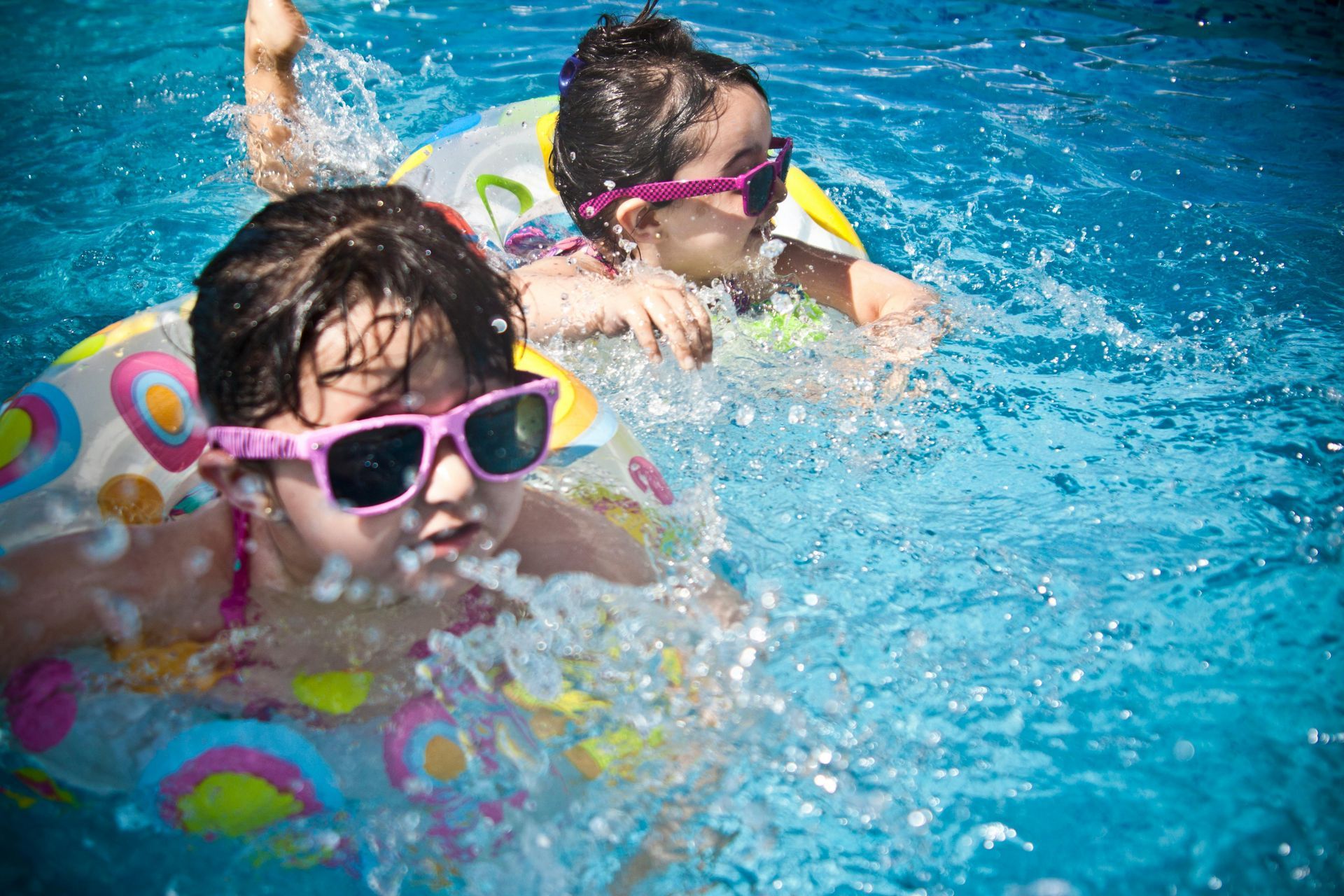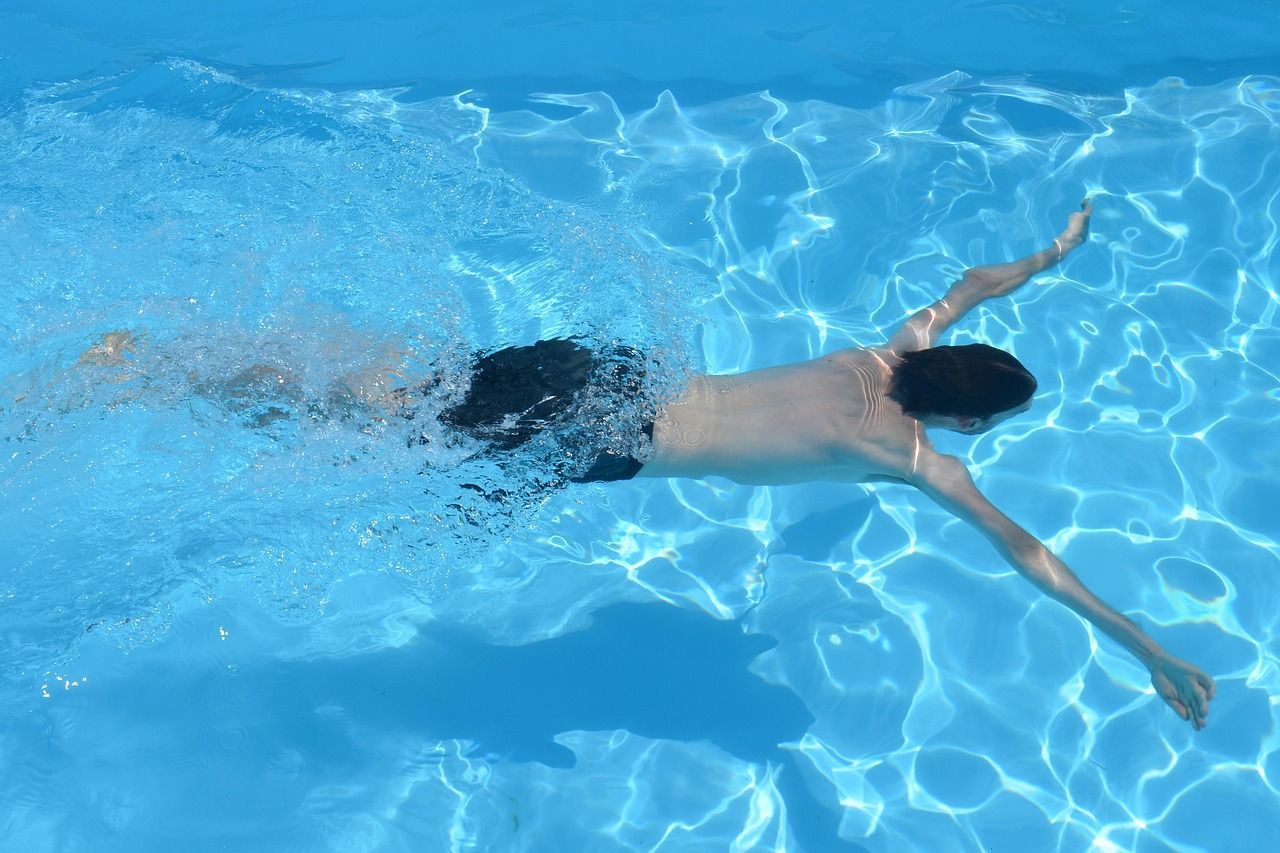Rinsing off before getting in a pool
Why rinse off before junping in?
What is the science behind this healthy practice? It is essentially to remove impurities on our body that can contaminate the water. For example: perspiration, body oils, cosmetics, lotions, sunblock, topical medications, etc.
In swimming pool water, chlorine binds to those impurities from our bodies, producing chloramines. Chloramines turn into gas in the air above the water and the gas is heavier than air, so it tends to hover on the surface of the pool. At indoor chlorinated pools, this can cause irritation of the skin, eyes, and respiratory tract. A quick rinse before getting into the pool can help a lot to reduce unwelcome bacteria in the pool.
As far as an outdoor pool where there is ample fresh air, showering before getting in reduces the amount of dirt in the pool and gives peace of mind to everyone.
Here are some other good health practices around the pool:
- Don't swim or let your kids swim if sick with diarrhea, until two (2) weeks after the diarrhea has stopped. This prevents microscopic bacteria from getting into the pool. For example, if the diarrhea is caused by Cryptosporidium, this parasite has been detected in stool up to two weeks after diarrhea. Chlorine, even in a properly-chlorinated pool, doesn't kill germs instantly, and worse, it doesn't kill cryptosporidium at all. Incidentally, ultraviolet (UV) light and ozone systems do kill cryptosporidium, but ozone pools still need some chlorine in them.
- Do your best not to swallow pool water. Avoid activities where pool water might be accidentally swallowed.
- Take kids for bathroom breaks often, alleviating the temptation to just go in the pool.
- Change diapers in the bathroom rather than poolside. Wash a toddler's bottom and your hands with soap and water when finished.
- Rinse off after getting out of the pool.
- Wash your hands with soap and water after getting out of the pool because bacteria on the hands can end up being swallowed if you touch your face or food (think barbecue).
Now that we know these precautions to take, let's rinse off, jump in, and enjoy the pool!

References and Resources
- Mayo Clinic on cryptosporidium parasite in pools -
https://newsnetwork.mayoclinic.org/discussion/infectious-diseases-keep-cryptosporidium-out-of-the-pool/
- Mayo Clinic on safe swimming practices -
https://newsnetwork.mayoclinic.org/discussion/mayo-clinic-expert-discusses-safe-swimming-practices-to-reduce-water-related-illnesses/
- Cleveland Clinic on chlorine cough -
https://health.clevelandclinic.org/is-the-chlorine-in-indoor-swimming-pools-hard-on-your-lungs
- CDC on chloramines and pool operation -
https://www.cdc.gov/healthy-swimming/toolkit/chloramines-and-pool-operation.html
- Cleveland Clinic on staying safe from recreational waterborne diseases -
https://health.clevelandclinic.org/tips-to-avoid-recreational-water-borne-diseases
Note - Our blog is researched and written by one of us at The Pharmacy, not AI or an external service. Let us know your thoughts on these topics and/or what you'd like to see here!





